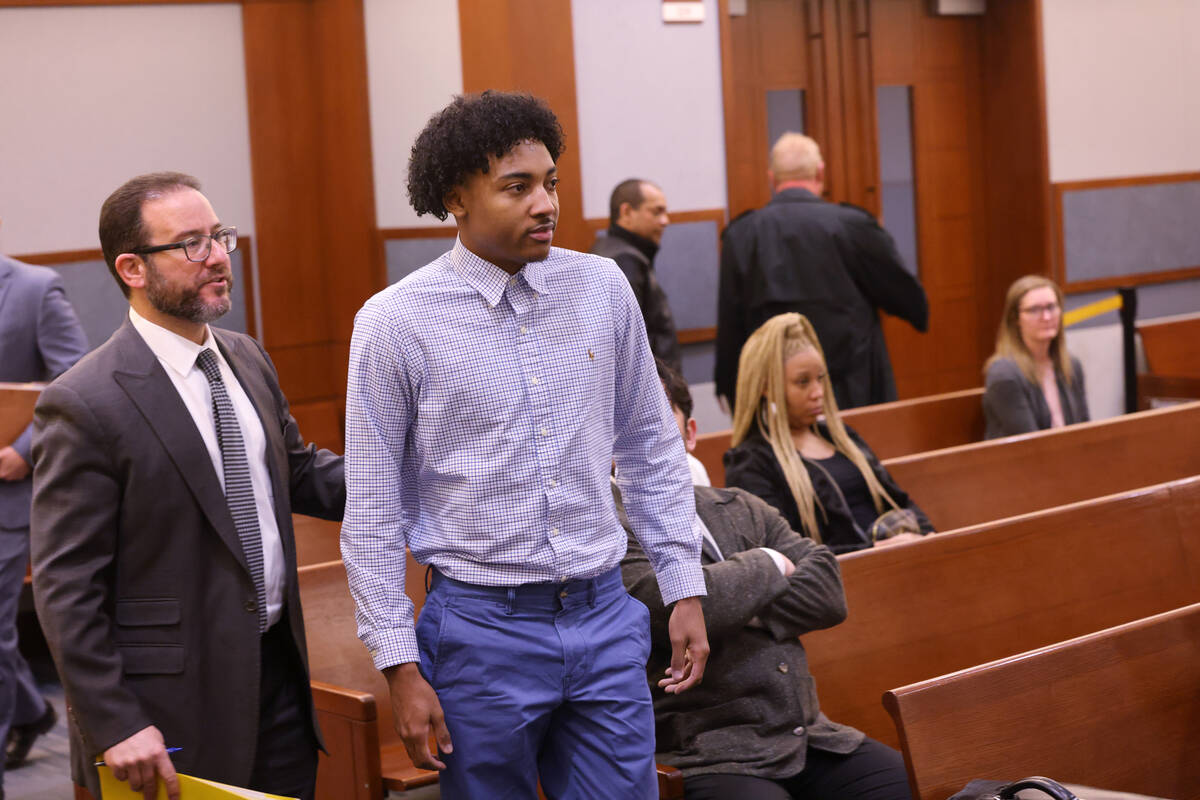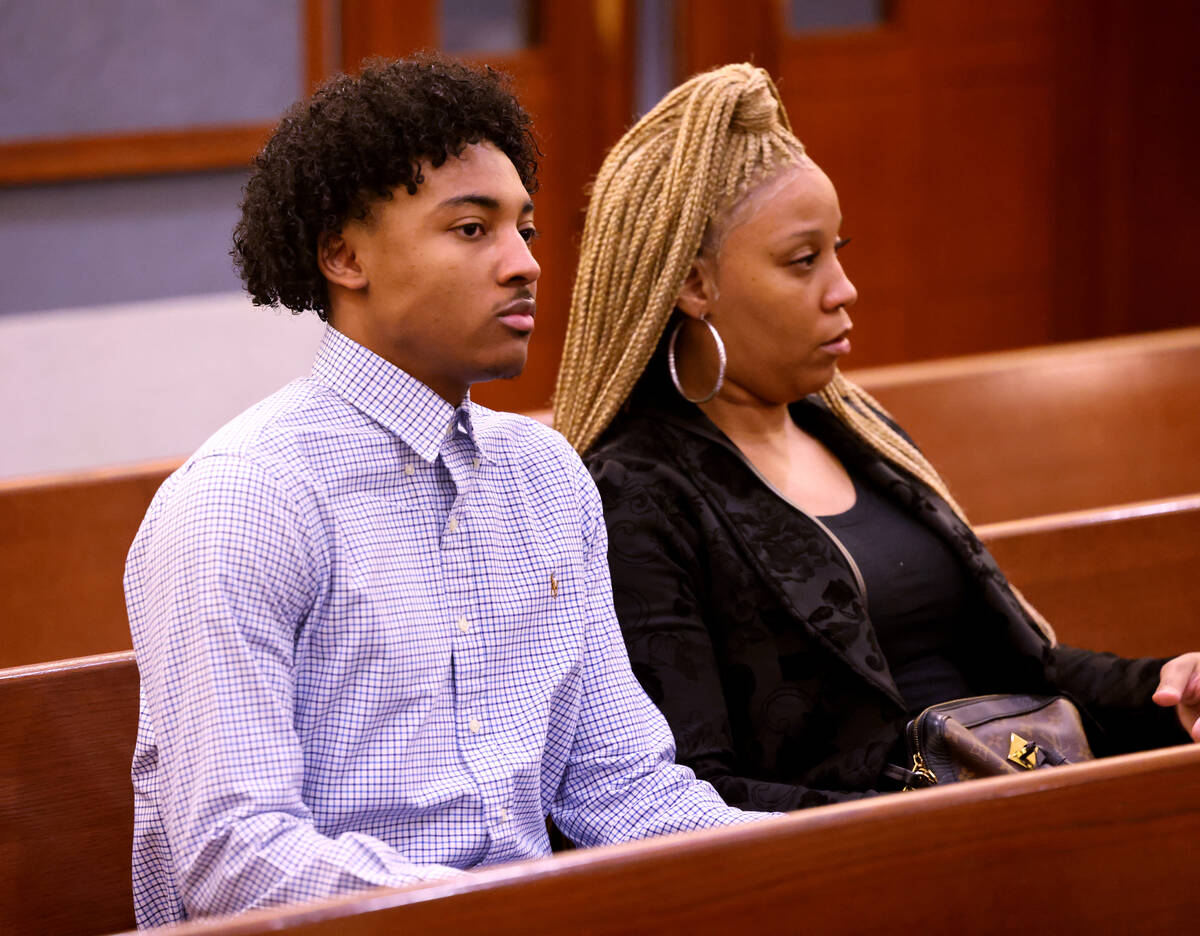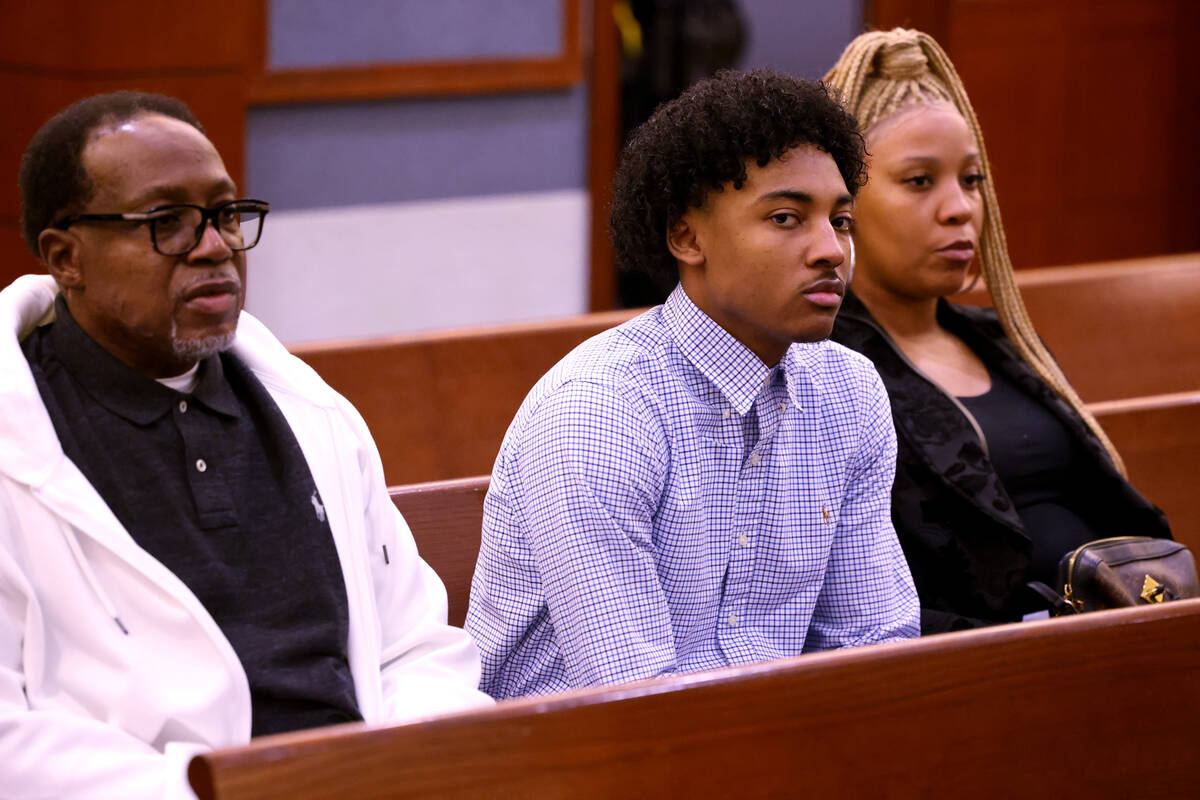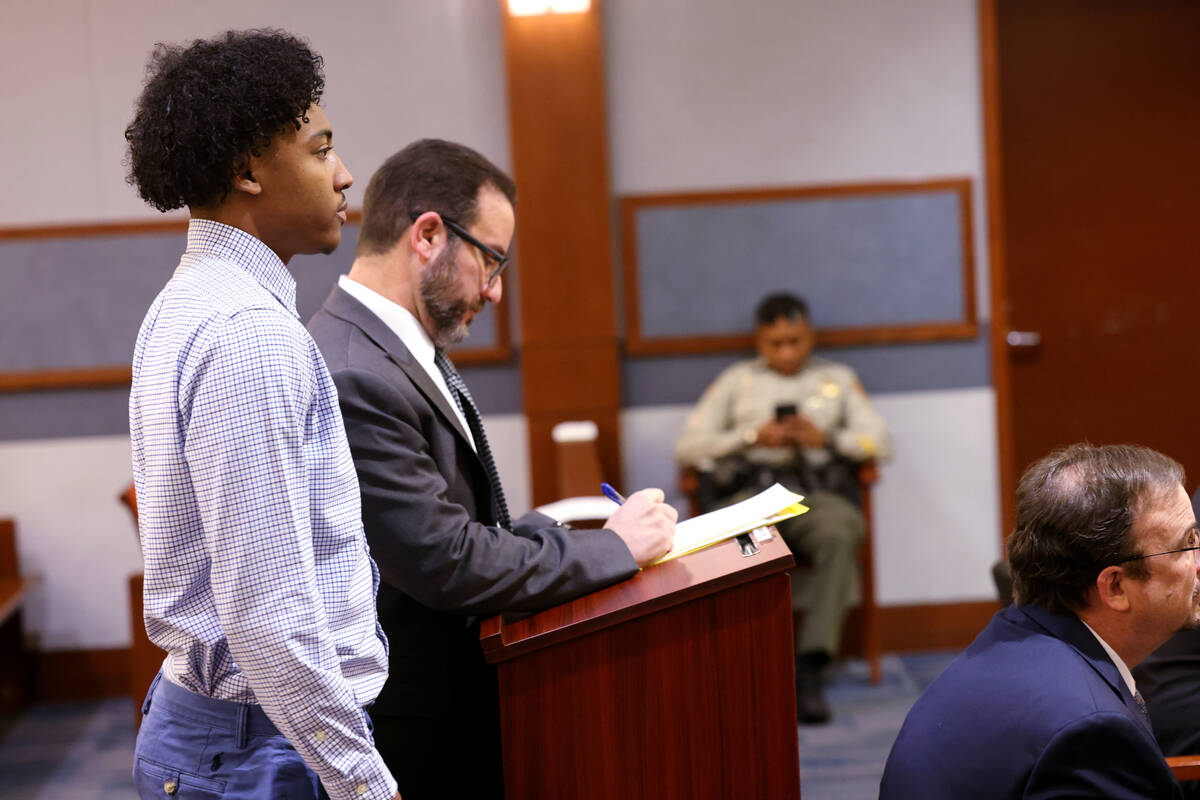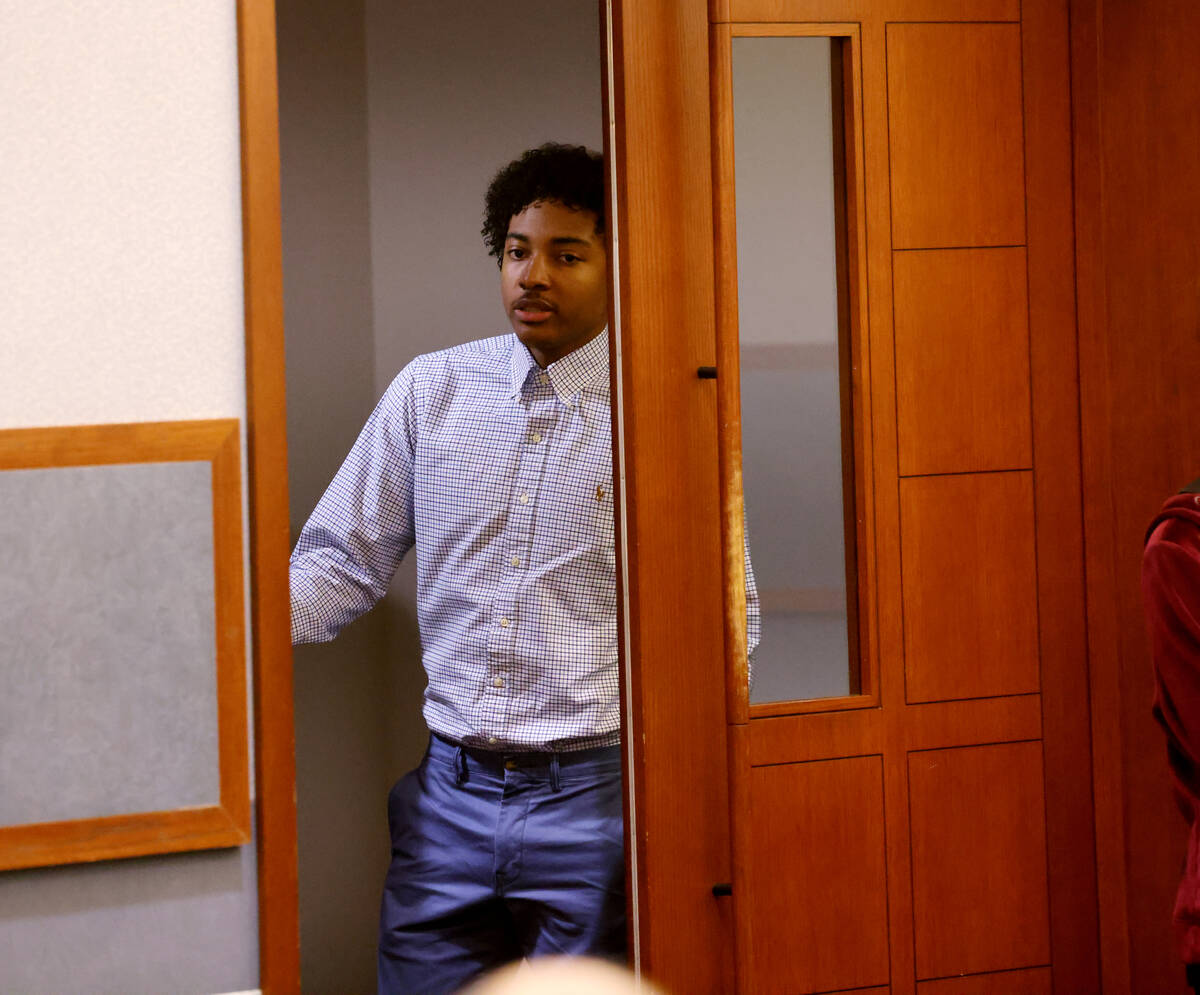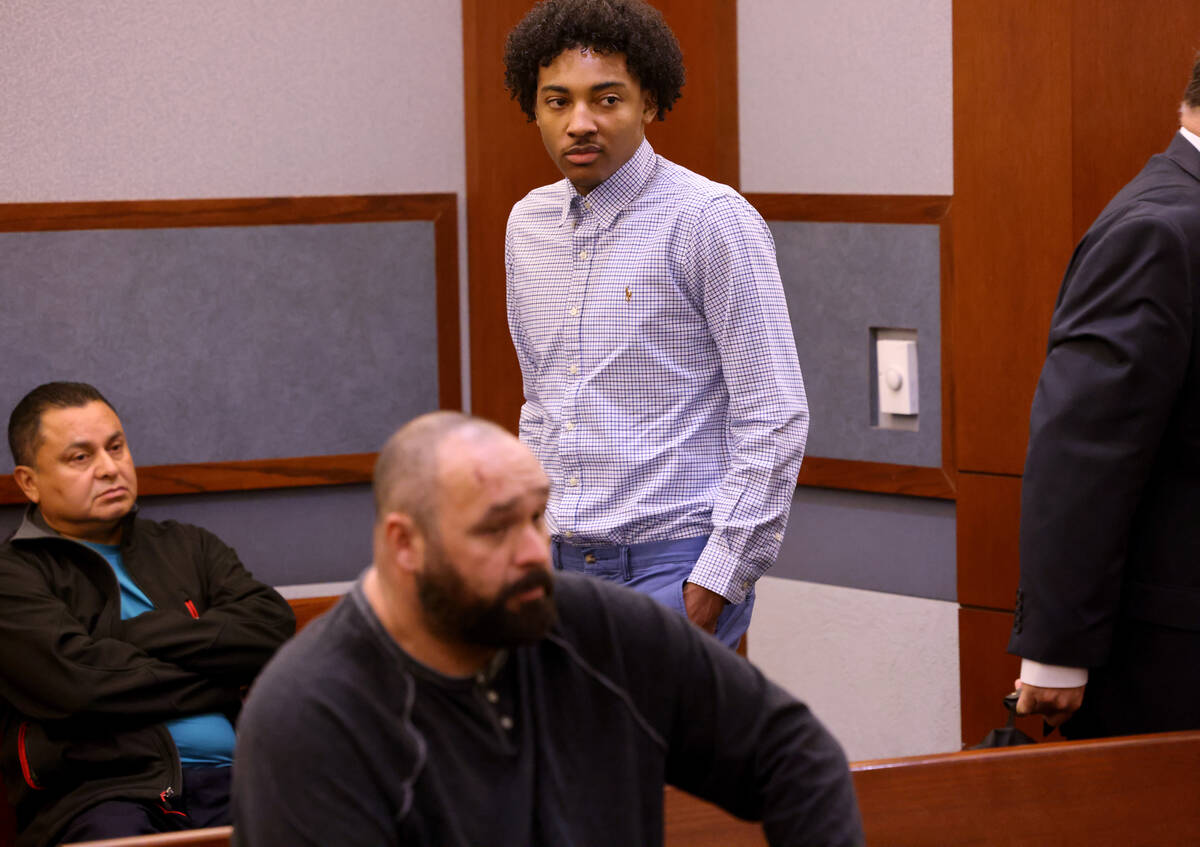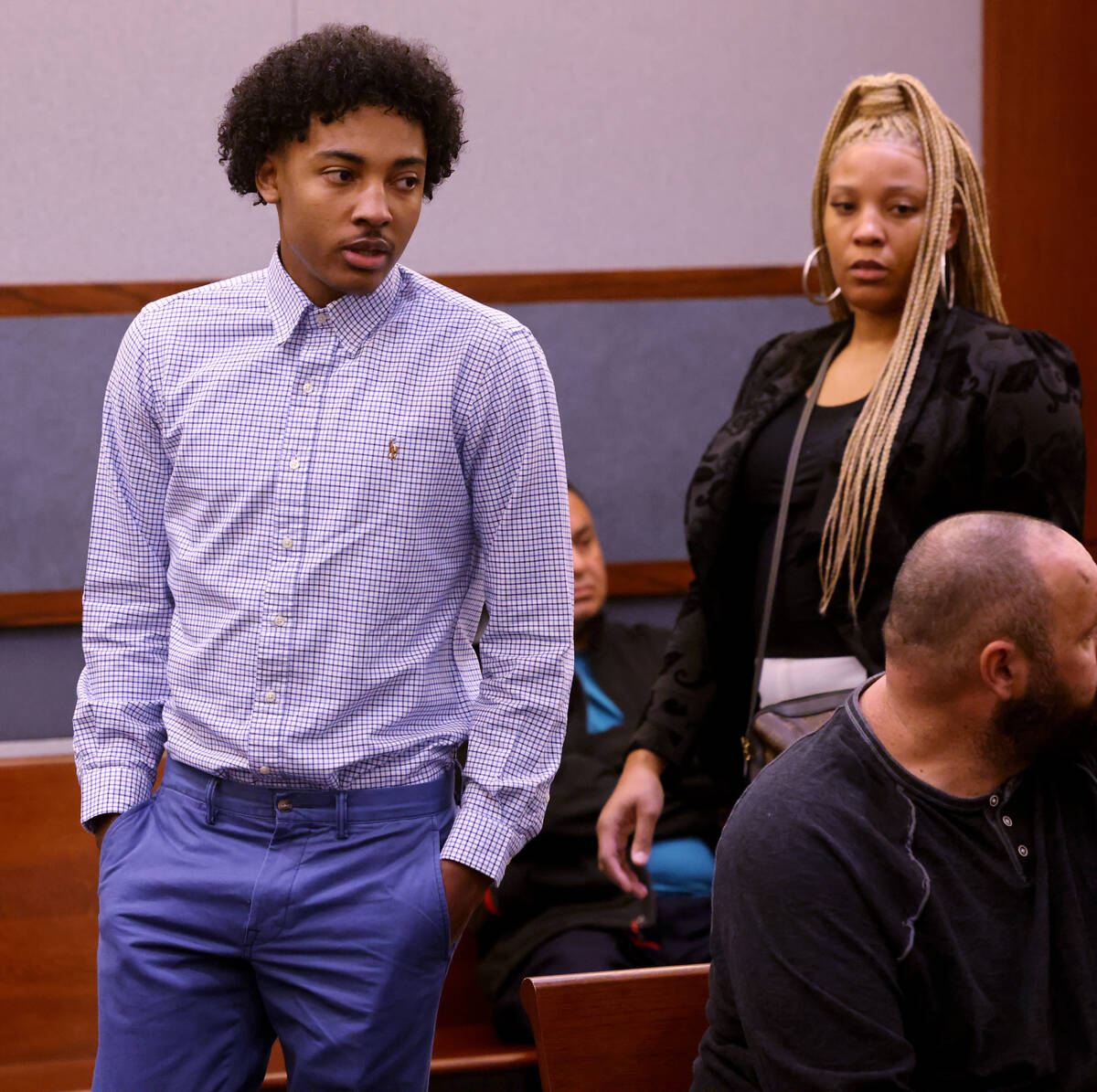2 years after fatal crash, Zaon Collins’ DUI case moves forward
A preliminary hearing date has been set for former UNLV basketball recruit Zaon Collins’ DUI case.
It has been nearly two years since the crash on Dec. 30, 2020, which left 52-year-old Eric Echevarria dead. Collins, who was 19 at the time, was driving his 2016 Dodge Challenger at nearly 90 mph in a 35 mph zone when he crashed into Echevarria’s car, police have said.
Criminal proceedings have been on hold while the Nevada Supreme Court decided on a petition arguing that Collins’ DUI charge is based on an unconstitutional state law regarding driving while under the influence of marijuana.
The high court denied the petition last month, with justices indicating that they do not believe the Supreme Court’s “discretionary extraordinary intervention” is warranted, although the court did not rule on the merits of the case.
During a court hearing Thursday, Las Vegas Justice of the Peace Ann Zimmerman scheduled a preliminary hearing in the case for April 6.
The Clark County district attorney’s office continued to pursue DUI and reckless driving charges against Collins after a grand jury refused to return an indictment on the DUI count in March 2021. Chief Deputy District Attorney Eric Bauman has said prosecutors are prepared to go forward with both charges at a preliminary hearing.
Collins’ defense attorneys, Richard Schonfeld and David Chesnoff, said in an emailed statement Thursday that they are “very disappointed” that the Supreme Court declined to address the merits of the appeal.
“Nevertheless, the significant legal issues remain to exist and we will continue to protect the rights of Mr. Collins and all citizens of the State of Nevada in that regard,” the attorneys said.
The Supreme Court also has denied a motion to reconsider the decision, court records show.
Attorneys previously asked for a lower court to dismiss the DUI case, but Justice of the Peace Suzan Baucum denied the defense motion in July 2021. In January, District Judge Susan Johnson refused to reverse Baucum’s decision.
Police have said Collins had 3 nanograms of THC per milliliter of blood in his system at the time of the crash.
Defense attorneys have argued that the level of THC was so low that Collins could have consumed the marijuana days before the crash. The legal limit for drivers in Nevada at the time of the crash was 2 nanograms per milliliter.
Defense attorneys have argued that a state law enacted in July 2021 that removed prohibitions on specific amounts of marijuana in a driver’s blood in misdemeanor cases should apply to Collins’ case because the case is still being litigated.
The statute maintains a limit in felony cases of 2 nanograms of THC per milliliter, which Collins’ attorneys have argued is arbitrary and based on the minimum level of THC that technology could test for in 1999, when the limit was set.
Contact Katelyn Newberg at knewberg@reviewjournal.com or 702-383-0240. Follow @k_newberg on Twitter.



